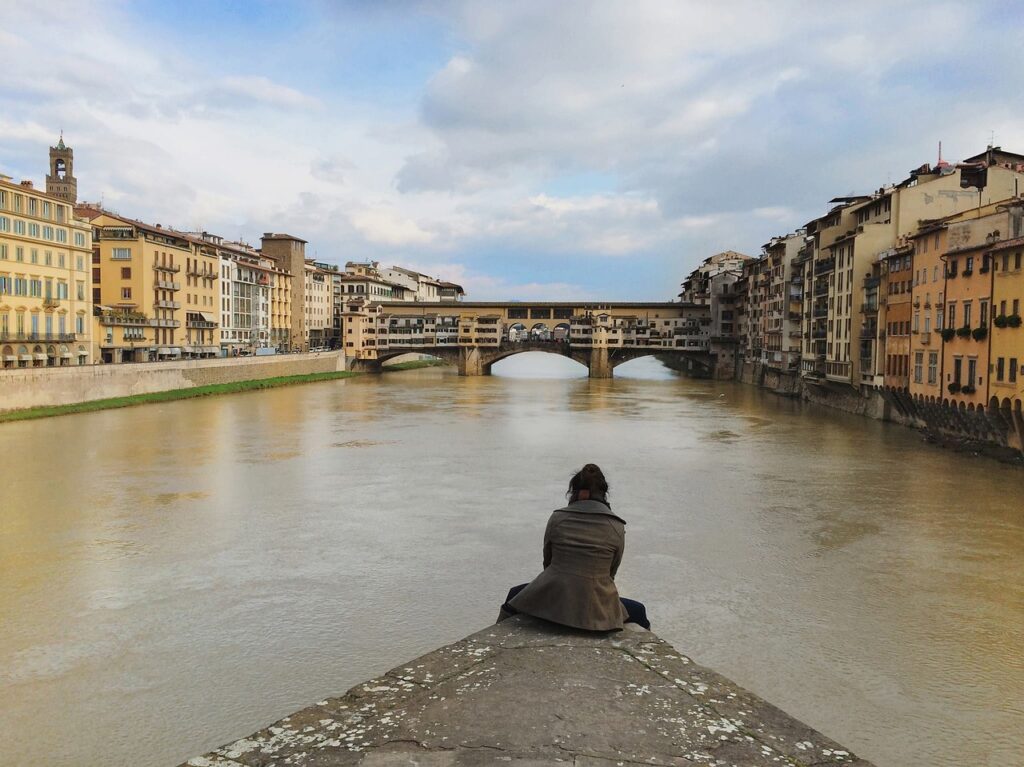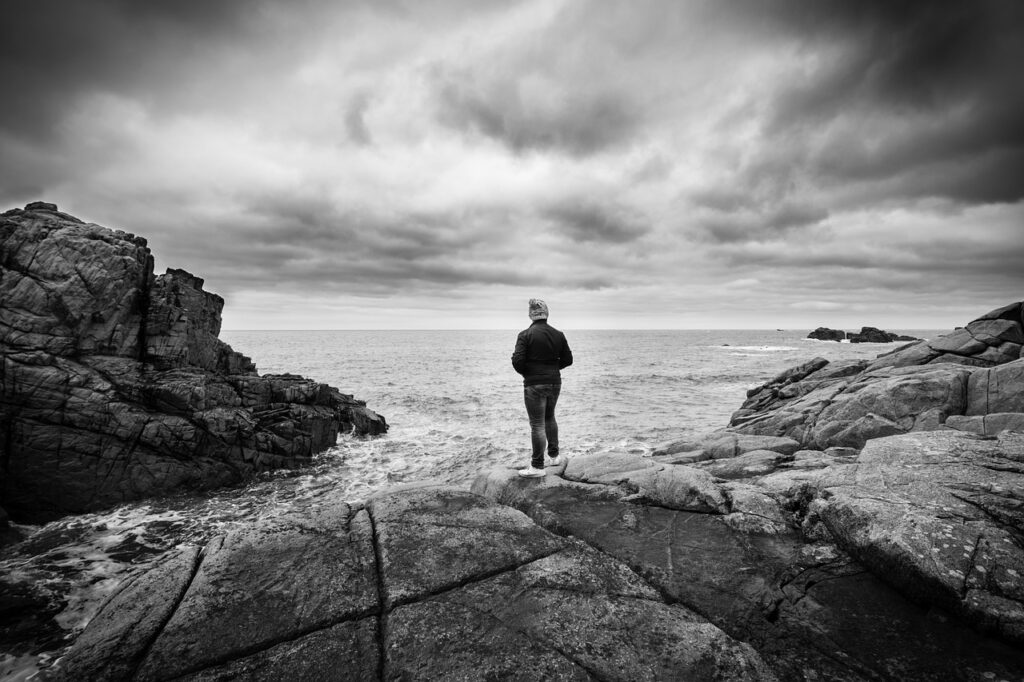
Top 5 Safety Tips for Solo Travelers
In a world brimming with possibilities, solo travel has emerged as an empowering and transformative way to explore new horizons. The allure of charting your own course, meeting diverse people, and immersing yourself in foreign cultures is undeniable. However, amidst the excitement of solo adventures, it’s crucial not to overlook the paramount importance of safety. Whether you’re a seasoned solo traveler or embarking on your first independent journey, arming yourself with the right knowledge and strategies can make all the difference. In this article, we’ll delve into the top five safety tips for solo travelers, equipping you with the tools to navigate uncharted territories while safeguarding your well-being every step of the way.
1. Research Your Destination
Before you set foot on foreign soil, embark on a virtual journey of research and exploration. Thoroughly acquainting yourself with your destination can significantly enhance your safety while solo traveling.
- Understand Local Customs and Culture: Immersing yourself in a new culture is one of the most rewarding aspects of travel, but it’s essential to be aware of local customs and norms to avoid inadvertently offending or disrespecting the local population. Study up on appropriate attire, greetings, and gestures. For example, in some countries, modest clothing is customary, while in others, haggling at markets is a cultural norm.
- Know the Laws and Regulations: Laws and regulations can vary greatly from one country to another, and ignorance is rarely an acceptable excuse. Research the local laws that may impact your travel experience, such as alcohol consumption, public behavior, and photography restrictions. Being aware of these rules will help you stay on the right side of the law and prevent any unnecessary legal entanglements.
- Health and Safety Precautions: Familiarize yourself with any health risks or vaccinations recommended for your destination. Research potential food and water safety concerns, and identify the nearest medical facilities. Additionally, if you have any specific medical needs, ensure you have access to the necessary medications and treatments during your trip.
- Political and Social Landscape: Stay informed about the political and social climate of your destination. Research local news, government travel advisories, and any ongoing conflicts. While this information might not alter your decision to travel, it can prepare you to adapt to changing circumstances and avoid potentially risky areas.
- Reliable Resources: Utilize reputable travel resources to gather insights and advice from fellow travelers. Online forums, travel blogs, and social media groups can provide invaluable firsthand information about safety tips, hidden gems, and off-the-beaten-path experiences. Engaging with other travelers can give you a broader perspective and help you make informed decisions.
2. Stay Connected
While the allure of disconnecting from the digital world during your solo travels is tempting, maintaining a connection with loved ones and the outside world can be a vital safety measure.
- International Communication Options: Before you embark on your journey, explore communication options that will keep you connected across borders. Consider investing in an international SIM card or a local SIM card upon arrival. These cards often offer affordable data and calling plans, enabling you to stay in touch without incurring exorbitant roaming charges.
- Messaging Apps and Social Media: Messaging apps like WhatsApp, Telegram, and Signal are great for real-time communication with friends and family, even when using Wi-Fi connections. Additionally, staying active on social media platforms can allow your loved ones to track your adventures and know you’re safe. However, be cautious about sharing too much personal information publicly.
- Regular Check-Ins: Establish a routine of regular check-ins with someone you trust back home. Set expectations for when and how you’ll update them on your whereabouts. This practice not only keeps you accountable but also provides peace of mind to your loved ones, knowing that you’re safe and sound.
- Emergency Contacts: Program local emergency contacts into your phone, including local police, medical services, and the nearest embassy or consulate. It’s always better to be prepared with these critical numbers in case of unforeseen situations.
- Public Wi-Fi Usage: Public Wi-Fi networks are often available in hotels, cafes, and public spaces. While they can be convenient for staying connected, exercise caution when using them for sensitive tasks like online banking or accessing personal accounts. To enhance security, consider using a Virtual Private Network (VPN) to encrypt your internet connection and protect your data from potential hackers.
- Share Your Itinerary: Share your travel itinerary with someone you trust before you embark on your journey. Include details such as flight information, accommodation addresses, and planned activities. This information can be crucial in case of emergencies or if someone needs to locate you.
3. Choose Accommodation Wisely
Where you rest your head at night plays a significant role in your overall safety and comfort during solo travel. Making informed choices about your accommodation can greatly contribute to a secure and enjoyable journey.
- Research and Reviews: Before booking any accommodation, conduct thorough research. Read reviews on reputable travel websites to gauge the experiences of other solo travelers. Look for comments about safety, cleanliness, and the behavior of staff and fellow guests.
- Location Matters: Opt for accommodations located in safe and well-traveled areas. While it might be tempting to stay in a secluded spot for tranquility, being close to public transportation, restaurants, and attractions can enhance your convenience and safety.
- Security Features: Prioritize accommodations that offer robust security features. Look for properties with secure entrances, 24/7 front desk service, and surveillance cameras. Some hostels even offer lockers for storing valuables.
- Private vs. Shared Accommodation: Consider your comfort level when choosing between private rooms and shared dormitories. While private rooms offer more solitude, shared dorms can provide opportunities to meet fellow travelers. If you opt for a dormitory, ensure there are secure storage options for your belongings.
- Communication with Accommodation Providers: Reach out to your chosen accommodation before your arrival to ask about their safety measures and any local safety concerns you should be aware of. Their responsiveness and willingness to address your concerns can be indicative of their commitment to guest safety.
- Backup Plan: In the event that your chosen accommodation doesn’t meet your expectations or turns out to be unsafe, have a backup plan. Research nearby alternatives in advance, so you’re not scrambling for a new place to stay in an unfamiliar location.
- Local Recommendations: Upon arrival, don’t hesitate to ask locals for recommendations on safe accommodations. Locals often have valuable insights into the best areas to stay and can direct you to trusted establishments.

4. Trust Your Instincts
When you’re exploring unfamiliar territories on your own, your instincts become valuable tools for gauging your safety. Listening to your gut feelings and recognizing potential danger signs can go a long way in ensuring your well-being.
- Listen to Your Intuition: Your intuition is a powerful ally. If something feels off or makes you uncomfortable, don’t ignore it. Pay attention to your inner voice and take precautionary measures, even if you can’t pinpoint a specific reason for your unease.
- Assess People and Situations: Observe the people and situations around you. If someone’s behavior seems suspicious or if you find yourself in an uncomfortable situation, prioritize your safety by distancing yourself. Trust your judgment and remember that it’s better to be overly cautious than regretful later.
- Avoid Risky Situations: Part of trusting your instincts involves actively avoiding situations that feel risky. This could mean declining invitations from strangers, not venturing into poorly lit areas at night, or declining rides from unlicensed transportation providers.
- Use Discretion with Information Sharing: Be cautious about sharing personal information with strangers. While meeting new people can be enriching, avoid revealing too much about your travel plans, accommodations, or other private details to those you’ve just met.
- Be Confident and Assertive: Confidence and assertiveness can deter potential threats. Walk with purpose, maintain good posture, and project an air of self-assuredness. Individuals with malicious intent are more likely to target those who appear vulnerable or unsure.
- Plan for Different Scenarios: Having a plan for different scenarios can give you the upper hand in unfamiliar situations. Consider what you would do if you were lost, if your belongings were stolen, or if you felt unsafe. This mental preparedness can help you respond effectively in unexpected circumstances.
- Seek Help When Needed: If your instincts tell you that you’re in danger, don’t hesitate to seek help. Trustworthy figures, such as law enforcement, security personnel, or staff at reputable establishments, can provide assistance and guidance.
5. Stay Aware of Your Surroundings
Vigilance and situational awareness are key components of staying safe as a solo traveler. By staying attuned to your environment and taking proactive measures, you can navigate new territories with confidence.
- Keep Valuables Secure: Minimize the risk of theft by keeping your valuables secure. Use a money belt, hidden pouch, or anti-theft backpack to deter pickpockets. Avoid displaying expensive items like cameras or gadgets openly, as this can attract unwanted attention.
- Stay Engaged, Not Distracted: While smartphones are essential tools for travelers, excessive use can make you an easy target. Limit your screen time when walking in public places, especially in crowded or unfamiliar areas, to remain aware of your surroundings.
- Use Maps Discreetly: Navigating with maps is common, but constantly referring to them can mark you as a tourist and make you vulnerable. Glance at maps discreetly or step into a café or shop to check directions if needed.
- Avoid Isolated Areas at Night: Exploring at night can offer a different perspective, but prioritize well-lit and busy areas. Steer clear of dimly lit alleys and isolated spaces after dark, as these can pose greater safety risks.
- Blend In with the Locals: Dressing modestly and adapting to local customs can help you blend in and avoid drawing unnecessary attention. Research the local dress code and social norms to ensure that your attire aligns with the cultural expectations.
- Stay Sober and Alert: Excessive alcohol consumption impairs judgment and makes you more vulnerable. If you choose to drink, do so in moderation and remain aware of your surroundings. Avoid accepting drinks from strangers and always keep an eye on your beverage.
- Trust People Cautiously: While solo travel often leads to new friendships, exercise caution when trusting new acquaintances. Be wary of overfriendly individuals who insist on accompanying you or taking you to unfamiliar places.
- Plan Your Routes: Before heading out, plan your routes and familiarize yourself with the layout of the area. This helps you navigate confidently and avoid getting lost, which can lead to potential safety concerns.
Solo travel is an exhilarating journey, and ensuring your safety remains paramount throughout. By adhering to these essential safety tips, from thorough research and staying connected to making informed accommodation choices, trusting your instincts, and staying aware of your surroundings, you’re equipped to embark on transformative adventures while minimizing risks. These precautions don’t hinder your exploration; they empower it. With these insights, your solo travel becomes a blend of adventure, enrichment, and safety, allowing you to create enduring memories with confidence.
